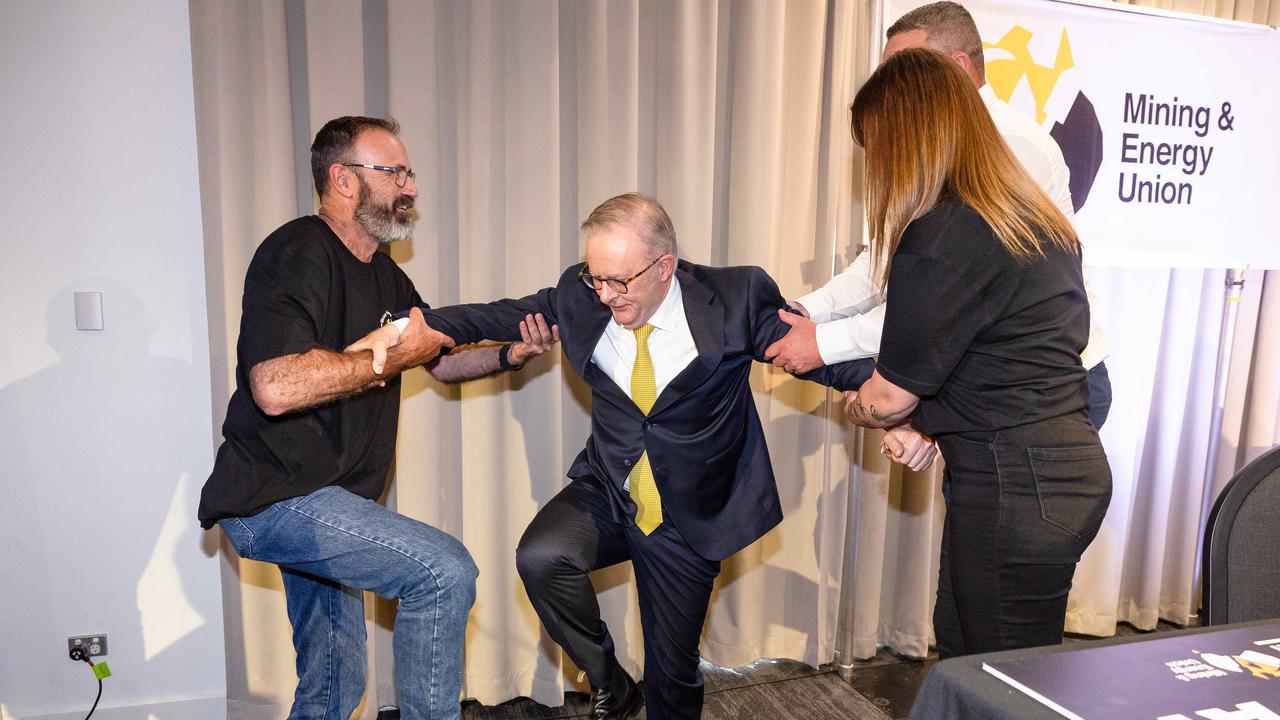ALP’s shift to direct action ‘to cost more’
A shift to ‘direct action’ on climate change by Labor would cost more and result in bigger job losses, says an expert.

A shift to “direct action” on climate change by Labor would cost more and result in bigger job losses than the market-based plan it took to the election, expert modeller Brian Fisher has said.
Dr Fisher said any proposal to abandon international permits and use direct action-style policies without lowering Labor’s 45 per cent Paris Agreement target and 50 per cent renewable energy target would result in “massive subsidies”. Labor environment spokesman Tony Burke has said the ALP should reconsider its climate change approach in the wake of its federal election loss.
But Dr Fisher, who spent 17 years as chief economist with the Australian Bureau of Agriculture and Resource Economics, said such a response risked missing the lessons of Labor’s defeat.
Dr Fisher modelled the Coalition and ALP policies during the campaign. His research exposed Labor’s inability to predict the cost of its plans.
A shift to direct action by Labor had been interpreted by some as a move to the right to embrace policies introduced by Tony Abbott.
But more direct government intervention to meet targets is also the approach adopted by Democrats in the US under the New Deal agenda and extreme environmental groups who want government to force rapid change without the use of markets.
Mr Burke said Labor should keep its 45 per cent emissions target but achieve it through direct action. “Effectively my principle is we can’t compromise on the science so any policy development should consider the mechanism,” Mr Burke told The Weekend Australian. “I am not committed to what that might be.”
However, Dr Fisher said it was the target, not the mechanism, that mattered most. “I think almost certainly a direct-action approach by Labor would be more expensive than the plan it took to the election,” he said.
“If they are talking about direct action but keeping their high targets it means effectively they will have to pay a very high subsidy to bring forward emissions cuts.
“It has to be much more expensive than international funding arrangements through a market mechanism.
“I think the cost to jobs and the size of the adjustment needed to the Australian economy would be much higher.
“The have misread why they lost the election because they could not explain how high the cost of climate action would be, what impact it would have on employment and the economy and how it would be met.”
The Australian Conservation Foundation said it supported Mr Burke’s suggested review of Labor’s approach.
“We are not wedded to a particular mechanism, so long as it cuts pollution rapidly and transitions Australia to clean energy,” ACF’s climate program manager Gavan McFadzean said.
“Clearly the Coalition’s climate policies have not met that test.”
“A responsible climate policy must include a whole-of-government and whole-economy approach to cutting pollution,” Mr McFadzean said.




To join the conversation, please log in. Don't have an account? Register
Join the conversation, you are commenting as Logout